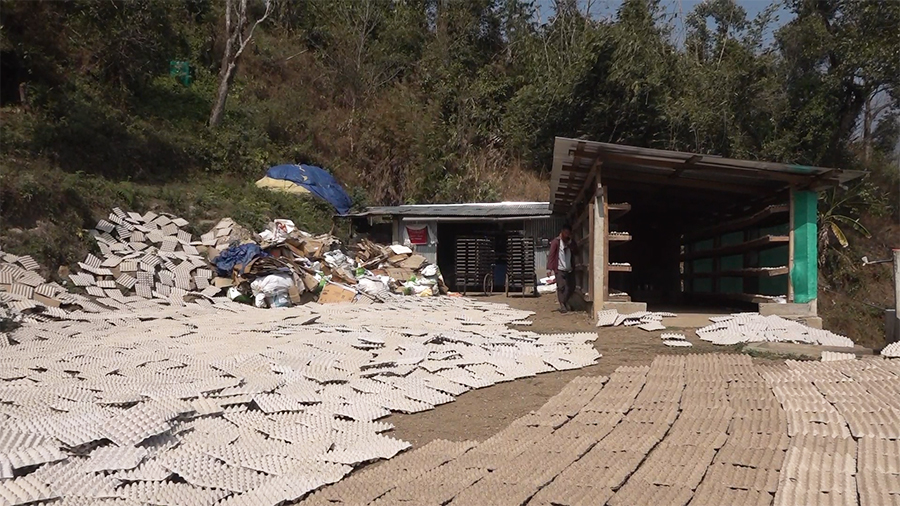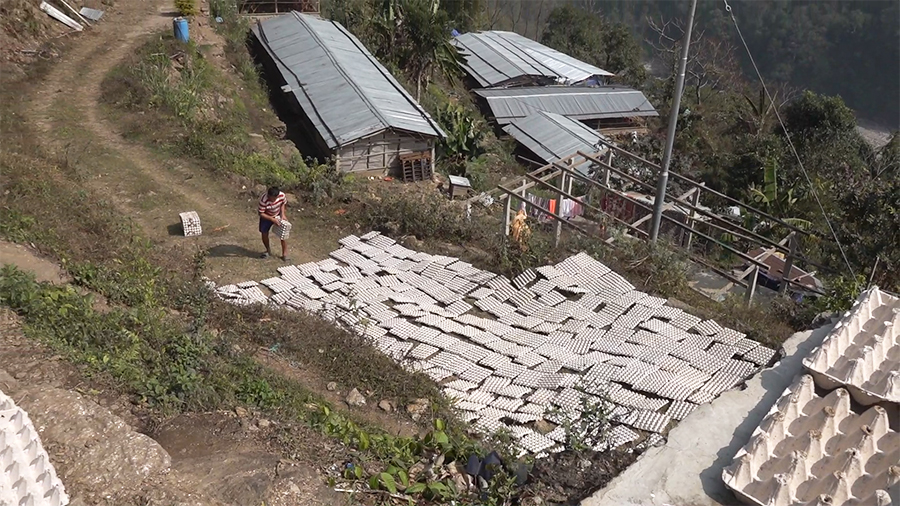
Dorokha’s sole egg tray making plant, established in 2022, is emerging as a success story in managing waste. The unit, the only such enterprise in the district, has effectively repurposed over 78,000 kilogrammes or 78 tonnes of paper waste into valuable egg trays so far.

Motivated by the surging demand for egg trays in the district and realising the heavy reliance of egg trays on neighbouring countries, 33-year-old Hasta Man Rai from Dorokha started the egg tray plant in 2022. It is also aimed at reducing waste through innovative recycling.
“Today, we are dealing with more waste and fewer solutions. The egg tray project aims to tackle local waste issues. Additionally, there is a significant shortage of egg trays in the country, and importing them from neighbouring Indian towns has become a tough task.”
The manufacturing process begins by collecting waste, primarily paper waste sourced from Dorokha and other offices within and outside Samtse.
The collected waste papers and cardboard undergo shredding, transforming them into small pieces. They are then mixed with water to create a pulp.
The pulp is subsequently poured into a forming machine that shapes the pulp into egg trays.
Unlike other units, Dorokha’s unit opts for natural drying, aligning with sustainability. The finished products are then packaged for sale.
And the unit is not facing any dearth of customers at present.
“As of now, we are getting good response and have a good market presence. We are also not facing any significant challenges. Additionally, our product, the egg trays, don’t come with any expiry dates. This gives us the flexibility to sell our products as and when required,” said Hasta Man Rai.
The positive impact of this initiative extends beyond Dorokha, as the egg trays reach as far as Chhukha, Haa, Dagana and Tsirang. The manufacturing unit produces approximately 5,000 to 7,000 pieces of egg trays daily.
So far the unit has successfully sold over one million pieces of egg trays priced at four ngultrum per piece. This is much cheaper compared to the imported trays which were bought usually paying nine ngultrum per piece.
The firm has plans to introduce new machines and produce egg trays with different designs. Currently, it employs six individuals from the local community.
With over 65 poultry farms, Samtse is one of the districts with the highest number of poultry farms in the country today. The project is being supported through Youth Empowerment through Rural Enterprises Project with technical support from the Dungkhag livestock sector.
Passang Dorji, Samtse
Edited by Kipchu









